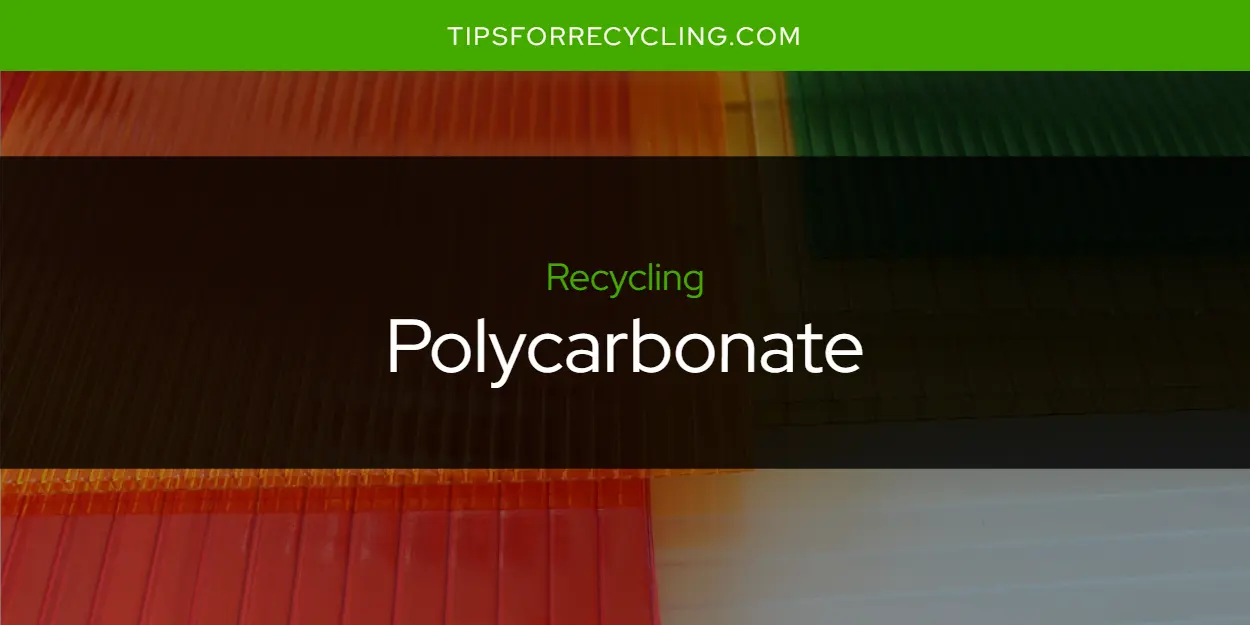Is Polycarbonate Recyclable?

Yes, polycarbonate plastics can be recycled. Polycarbonates are often used in packaging and electronic items due to their strength and heat resistance. They can also be found in various home appliances and auto parts, making them a common presence in many households. Although it may not seem ideal at first glance, recycling is the best way to ensure that these items don’t end up as part of the growing plastic pollution problem we face today.
See the below map for locations where you can recycle polycarbonate.
No, unfortunately you cannot make money from recycling polycarbonates. However, there are still plenty of other benefits from doing so such as reducing waste sent to landfills, conserving natural resources, and helping to reduce carbon emissions from producing new products with virgin materials.
Similarly, see if you can recycle polyurethane.
Recycling polycarbonates has numerous benefits for both the environment and local communities. Reusing old plastics helps reduce landfill waste by diverting these items away from landfills where they would take up space for centuries before breaking down into smaller pieces of microplastics that can leach into water supplies and cause significant environmental damage. Additionally, recycling reduces the demand for new materials which in turn lowers carbon emissions produced during manufacturing processes. Last but not least, it helps save energy since it takes less energy to process recycled goods than to create new ones from scratch.
Similarly, see if you can recycle polypropylene.
There are several ways to ensure that your discarded items containing polycarbonate plastics are properly recycled:
Similarly, see if you can recycle laminate.
Some companies that accept polycarbonate materials include TerraCycle, Plastic Solutions Worldwide (PSW), Wellman Advanced Materials Plastics Group (WAMPG), Closed Loop Environmental Solutions (CLES) and JBI Incorporated (JBI). All of these companies provide services such as collection points for used plastics or mail back programs which enable individuals and businesses to send their used plastics directly to them for processing. Check with each company for specific details about their services before sending your material out for recycling.
Similarly, see if you can recycle polystyrene.
The best place to start looking is by checking with your local government if they have any type of curbside pick up program available that accepts used plastics such as polycarbonate items. If not, you may want to look into private companies specializing in plastic recycling services who likely have collection sites near you as well which could make it easier for you to drop off your used items without having to go out of your way too much.
Similarly, see if you can recycle polyester.
In addition to polycarbons, other common types of plastics such as PET (polyethylene terephthalate) bottles, HDPE (high density polyethylene) containers like milk jugs and detergent bottles can also be recycled along with polycarbonates depending on what type of facility you are using or whether they accept mixed loads or not - always check with your local recycler beforehand!